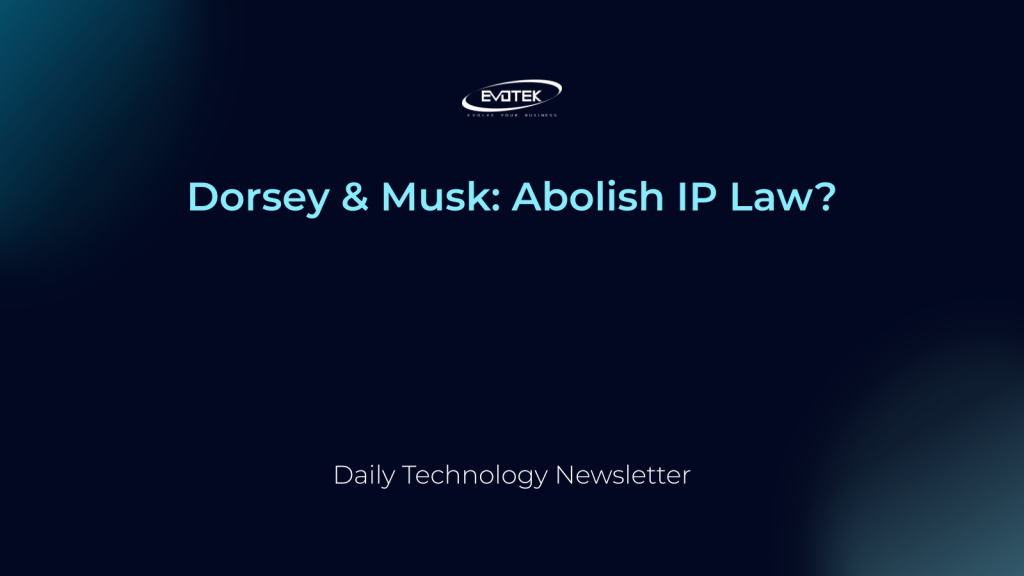A debate ignited after Jack Dorsey, the co-founder of Twitter (now X) and Square (Block), posted a concise yet provocative statement: “delete all IP law.” Elon Musk, X’s current owner, swiftly echoed this sentiment with a simple, “I agree.”
The context of these remarks remains somewhat ambiguous. However, they surfaced amidst ongoing lawsuits against AI companies, notably OpenAI (co-founded by Musk), alleging copyright infringement for training AI models.
Chris Messina, a tech enthusiast and investor, supported Dorsey’s view, suggesting that automated IP fines for AI infringement could become a substitute for incarcerating individuals for minor offenses. Conversely, Ed Newton-Rex of Fairly Trained criticized Dorsey and Musk, accusing them of waging war on creators whose work is being exploited for profit. Writer Lincoln Michel argued that IP law is fundamental to the existence of Dorsey and Musk’s companies and that they simply dislike artists.
Dorsey elaborated, stating that superior models for compensating creators exist and that the current system disproportionately benefits gatekeepers. Nicole Shanahan, an attorney, argued that IP law distinguishes human creations from AI, urging for reform instead of abolishment.
Musk’s stance aligns with his past statements, such as his claim that “patents are for the weak.” Tesla previously pledged not to enforce patents against companies using them in good faith, although they later pursued legal action against Cap-XX.
Dorsey’s interest in open-source social media led to the creation of Bluesky, although he eventually distanced himself from the project. Jay Graber, Bluesky’s CEO, suggested that Dorsey’s departure allowed the company to evolve independently.
The intersection of social media commentary and governmental policy is increasingly blurred, exemplified by Musk’s involvement in the Trump administration and his implementation of mass layoffs through the “Department of Government Efficiency.”
Topics: Government & Policy, Jack Dorsey, Social.

 日本語
日本語 한국어
한국어 Tiếng Việt
Tiếng Việt 简体中文
简体中文